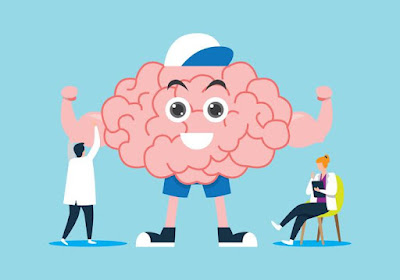Nutrition plays a crucial role in our
overall health, including our mental health. The food we eat not only nourishes
our body but also has a significant impact on our mood, emotions, and behavior.
In recent years, there has been a growing interest in the connection between
nutrition and mental health, and many studies have shown that a healthy diet
can have a positive effect on our mental well-being.
As a psychiatrist in
Bhopal, I have seen firsthand the impact of nutrition on mental health. In my
practice, I have noticed that patients who follow a balanced and nutritious
diet tend to have better mental health outcomes compared to those who have a
poor diet. This observation is supported by numerous studies that have linked
nutrition to various mental health conditions such as depression, anxiety, and
even schizophrenia.
One of the ways nutrition affects
mental health is through the production of neurotransmitters in the brain.
Neurotransmitters are chemical messengers that regulate mood, emotions, and
behavior. Certain nutrients, such as omega-3 fatty acids, B vitamins, and amino
acids, are essential for the production and functioning of these
neurotransmitters. A deficiency in these nutrients can lead to imbalances in
the brain, causing mood swings, irritability, and other mental health issues.
Also Read: Mental Doctor in
Bhopal
Moreover, our gut health also plays a
crucial role in our mental well-being. The gut is often referred to as the
"second brain" because it contains millions of neurons that
communicate with the brain through the nervous system. The gut and brain are
connected through the gut-brain axis, and any disruption in this communication
can lead to mental health problems. A healthy gut microbiome, which is the
community of bacteria in our gut, is essential for maintaining good mental
health. A diet rich in fiber and probiotics can help promote a healthy gut
microbiome, leading to improved mental health.
Also Read: OCD Treatment in
Bhopal
On the other hand, a poor diet, high
in processed and sugary foods, has been linked to an increased risk of mental
health issues. Studies have shown that a diet high in processed foods, such as
fast food and refined carbohydrates, can increase the risk of depression and
anxiety. These foods can cause inflammation in the body, including the brain,
which can affect mood and behavior. Additionally, a diet high in sugar can lead
to blood sugar spikes and crashes, causing mood swings and irritability.


